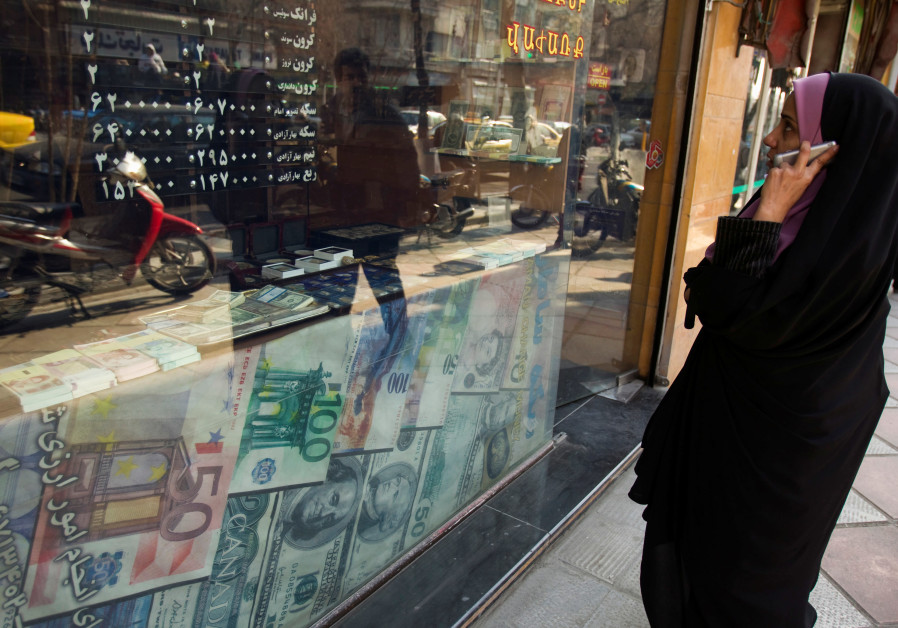Liberman eggs on Iranian protestors: Where is your money?

A woman looks at exchange rates by the window of a currency exchange shop in Tehran’s business district, Iran. (photo credit: RAHEB HOMAVANDI/REUTERS)
Israel and its leaders should be cautions about encouraging the economic protests in Iran, lest their words have the opposite effect of what is intended, according to Raz Zimmt, an Iranian expert at the Institute for National Security Studies in Tel Aviv.
In response to a tweet posted by the Foreign Ministry in Persian on Monday wishing the protestors success in bringing down the Iranian regime, Zimmt posted a tweet of his own arguing that these types of words are counterproductive.
“I have said before and will say again, Israeli appeals to the Iranian people (both from the Prime Minister and on social media) are positive, especially with proposals such as assistance in dealing with the water shortage. But blatant and futile calls to overthrow the regime only create antagonism and are perceived as illegitimate foreign interference even by the critics of the regime in Iran,” he wrote.
The Foreign Ministry tweet was subsequently removed.
In recent days, as the rial has plunged, demonstrators have taken to the streets in Iran angrily protesting that the regime is investing in Syria, Hezbollah and Hamas, but not at home. Chants of “Death to Palestine” were reported on Tuesday, replacing the chants of “Death to America” or “Death to Israel” often heard in Iran.
On Tuesday, Defense Minister Avigdor Liberman uploaded a post in Persian to Facebook and Twitter also directed toward the Iranian people, asking them “where is your money going?”
“Until today, despite economic difficulties at home, the Iranian regime continues to invest billions in Syria, Hezbollah, Islamic Jihad, the Houthis in Yemen and the Shiite militias in Iraq,” Liberman worte. “In 2018 Iran obligated itself to pay each of those organization $2.5 billion. Until now, Iran has spent $14 billion alone in Syria.”
אני פונה כאן לאזרחי איראן – לאן הולך הכסף שלכם? pic.twitter.com/fABW8ecaEd
— אביגדור ליברמן (@AvigdorLiberman) June 26, 2018
The defense minister said that even as Iranians were “fighting for bread” last month “on the streets of Tehran,” Qassem Soleimani, the head of the Iranian revolutionary Guards’ Quds Force, carried out a number of logistical actions in Syria that cost $70 million.
Liberman signed off the post saying, “for your information,” and congratulating Iran for its impressive showing at the World Cup.
Liberman’s appeal to the iranians comes two weeks after Prime Minister uploaded a video translated into Persian in which he offered the Iranian people help in dealing with the country’s acute water shortage.
Those types of appeals are effective, Zimmt said at the time. He added that he was in favor of positive messages to the Iranian people – about how Israel can help – and that those messages were far more effective than the ones about how terrible the iranians have it.
“You have to turn to the average citizens, and it is better do that through positive messages – where you can help them – rather than talk again about a lack of freedom or democracy,” he said. “They know that the regime is corrupt. They know that the economic situation is difficult. And they know that they don’t have democracy. They don’t need the prime minister of Israel to remind them.”






Comments are closed.